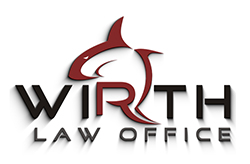Understanding Oklahoma’s Parole Hearing Process
For those incarcerated in Oklahoma, the parole hearing process can be a critical step toward regaining freedom. Parole is a conditional release from prison, allowing an individual to serve the rest of their sentence under supervision outside of incarceration. However, navigating this process is complex and governed by specific rules and procedures. Many clients express confusion and anxiety about how parole decisions are made, what to expect during the hearing, and how to prepare effectively.
The Pardon and Parole Board holds the power to grant or deny parole. Okla. Stat. tit. 57 § 332. ; Their duties include reviewing each inmate’s case, considering factors like behavior in prison, the nature of the original offense, and the risk to public safety. The hearing process itself follows strict procedures to ensure fairness, but it also requires careful preparation from the parole candidate. Understanding how these components fit together is essential for anyone hoping to secure parole successfully. Without proper guidance, clients often feel overwhelmed by the legal jargon and the stakes involved.
The High Stakes of Parole Decisions
Failing to approach the parole hearing with the right strategy can have severe consequences. Without parole, a person must serve their full sentence behind bars, which can mean years of lost freedom. This impacts more than just the individual; it jeopardizes family relationships, threatens employment opportunities, and can even affect child custody arrangements. For non-citizens, parole denial may also worsen immigration status, leading to deportation risks.
Delays in addressing parole matters or ignoring the process altogether can cause legal problems to escalate rapidly. The stress and fear that come with uncertain futures weigh heavily on inmates and their loved ones. The possibility of parole revocation adds another layer of anxiety—if parole is granted but then revoked due to violations, the individual must return to prison and might lose credit for time served outside incarceration. This makes it vital to understand both the opportunities and risks involved during and after the parole hearing.
In Oklahoma, the Board considers numerous factors for parole, including the inmate’s conduct, rehabilitation efforts, and the potential for reintegration into society. These considerations are outlined clearly in the laws governing the Board’s powers and duties. However, successfully presenting these factors in a hearing requires more than just knowledge—it requires skilled legal assistance to advocate effectively.
How Wirth Law Office – Oklahoma City Helps You Navigate Parole Hearings
Clients facing parole hearings need an experienced criminal defense attorney who understands the nuances of Oklahoma’s parole system. Wirth Law Office – Oklahoma City has experience in in guiding clients through every step of this process. From preparing for the hearing to presenting a compelling case to the Pardon and Parole Board, the firm focuses on protecting clients’ rights and maximizing their chances for a favorable outcome.
Wirth Law Office – Oklahoma City also educates clients about the importance of complying with parole conditions and the consequences of parole revocation, which can include losing credit for time served on parole. This helps clients avoid pitfalls that could result in returning to incarceration. With expert counsel, individuals can approach their hearings informed, prepared, and confident.
For anyone facing the uncertainty of a parole hearing in Oklahoma, having a knowledgeable Oklahoma City attorney by their side makes a critical difference. The timely intervention and aggressive representation offered by Wirth Law Office – Oklahoma City can protect freedom, family stability, and future opportunities.
If you need legal help, call Wirth Law Office – Oklahoma City at (405) 888-5400.







